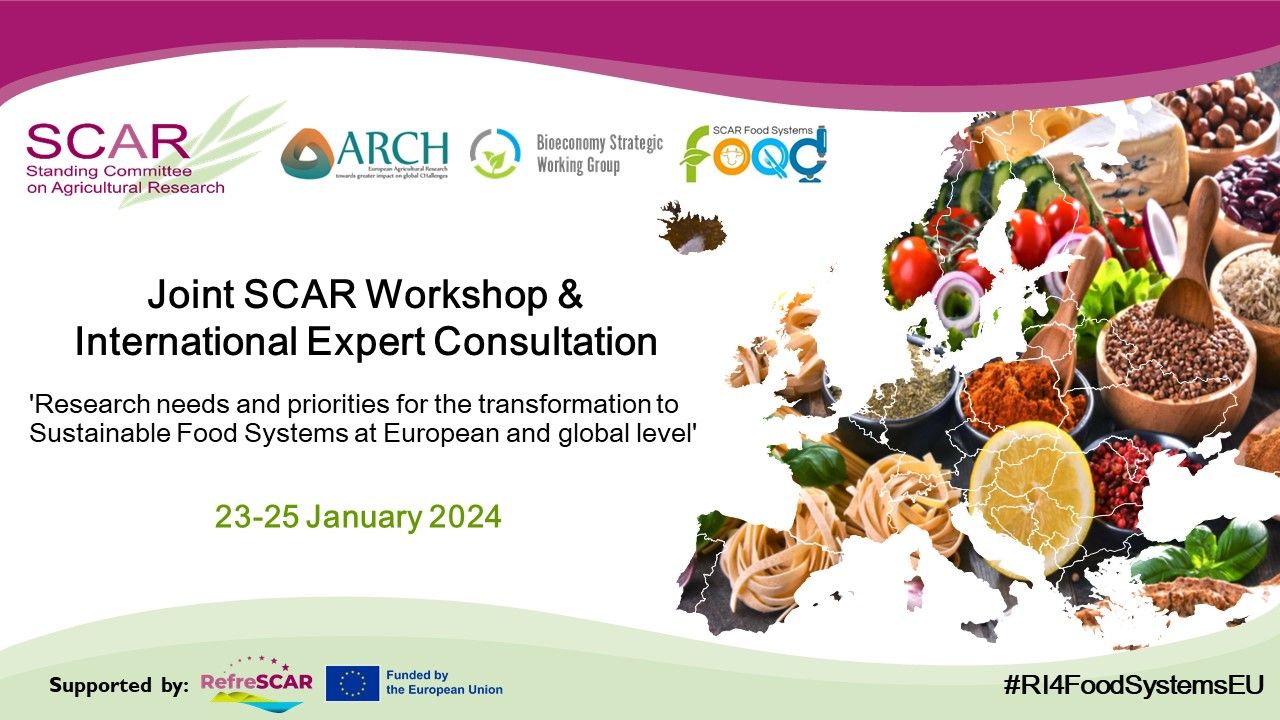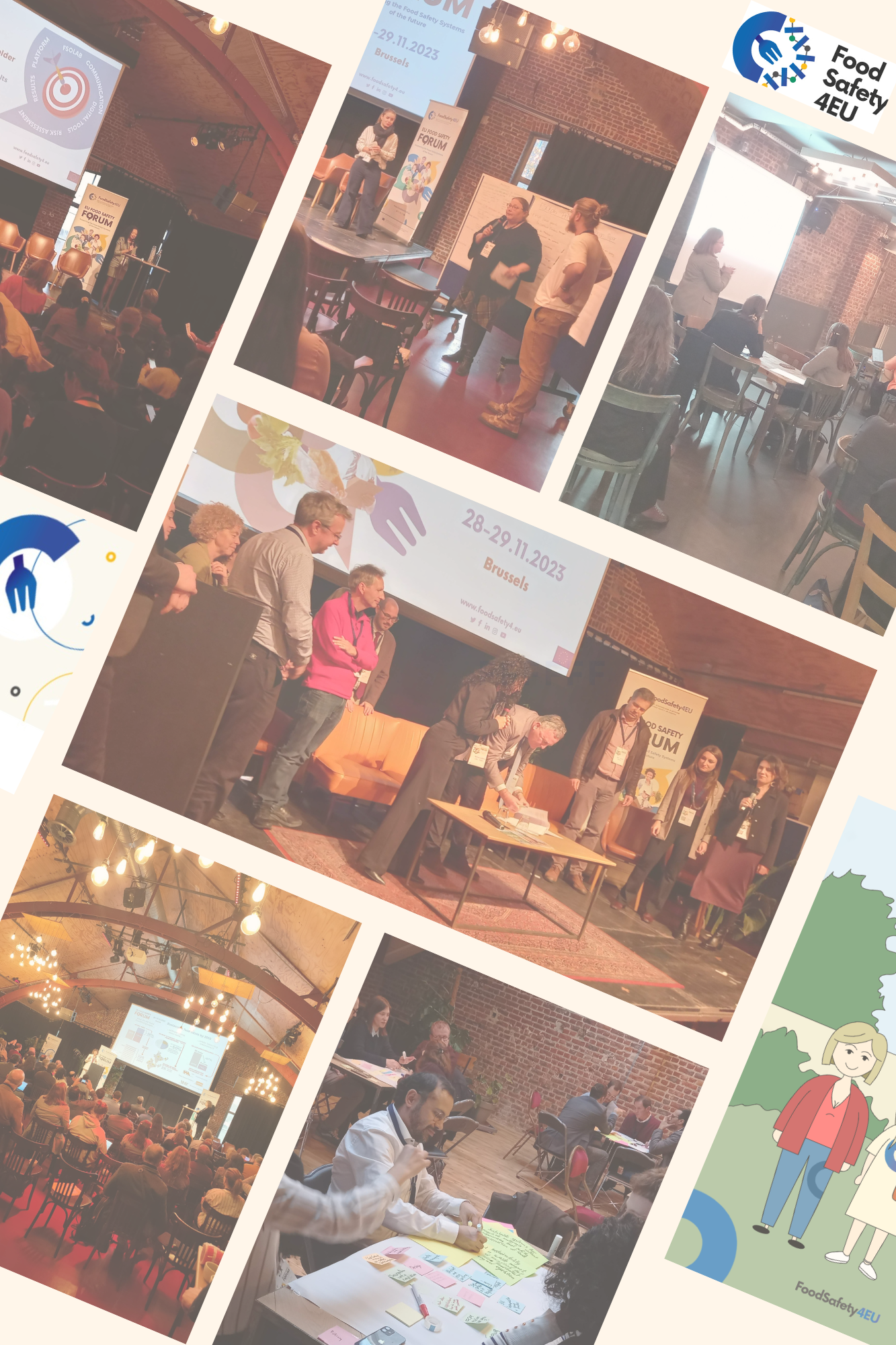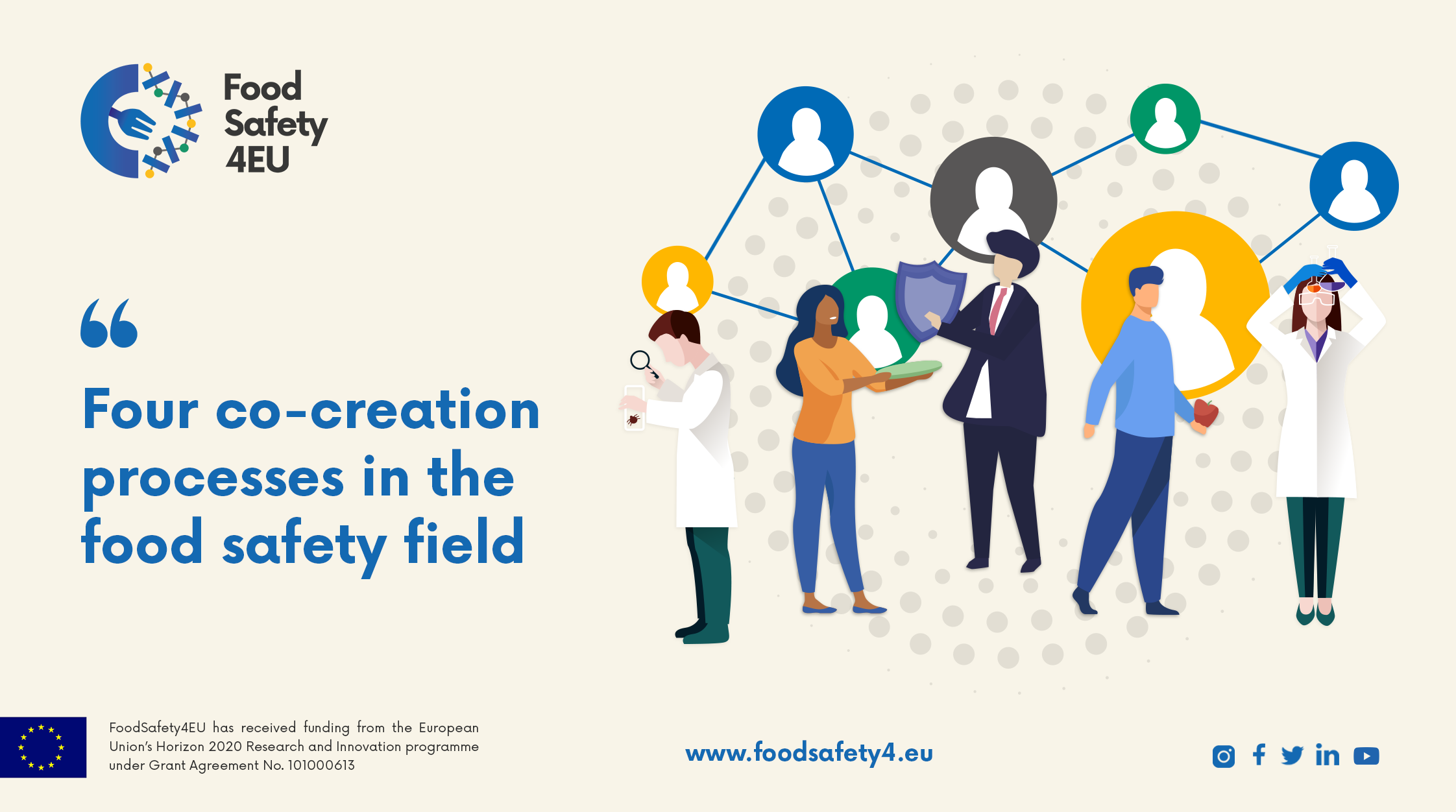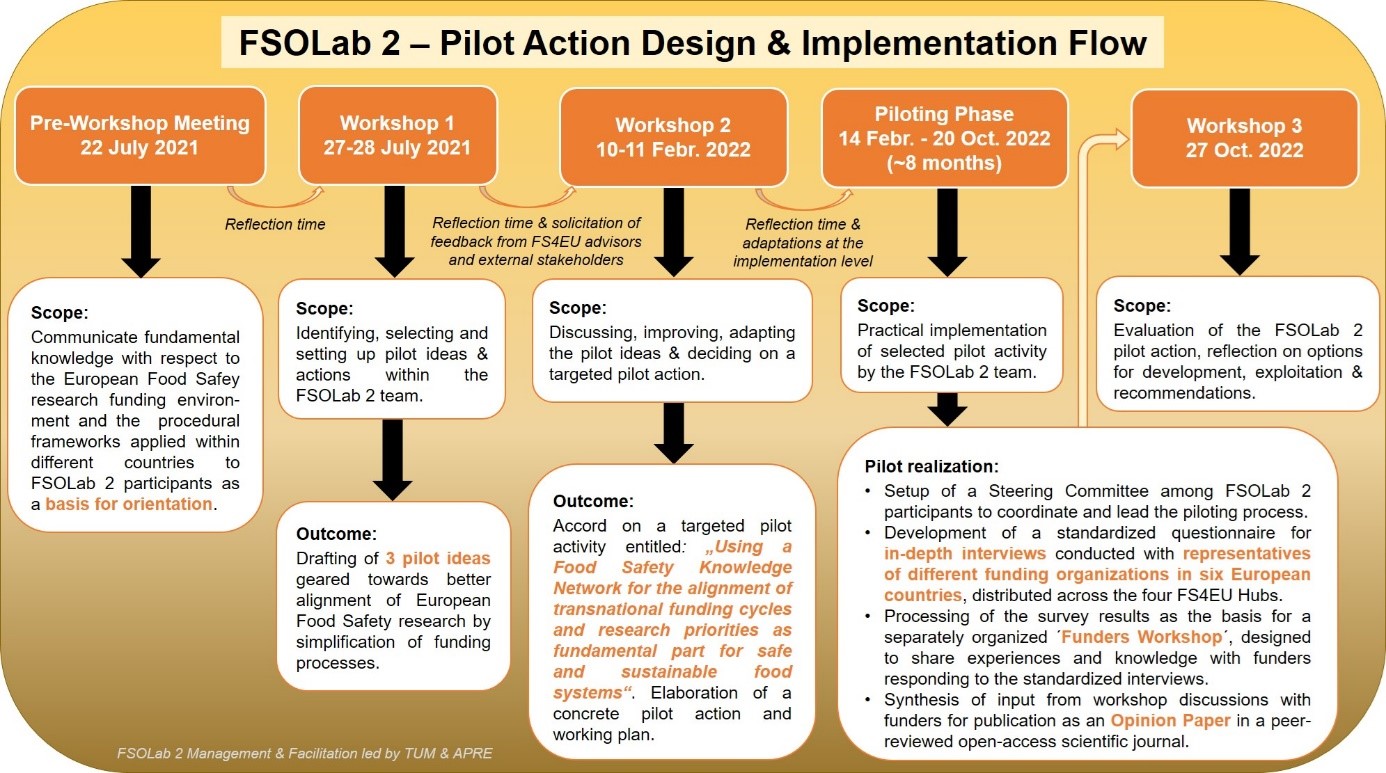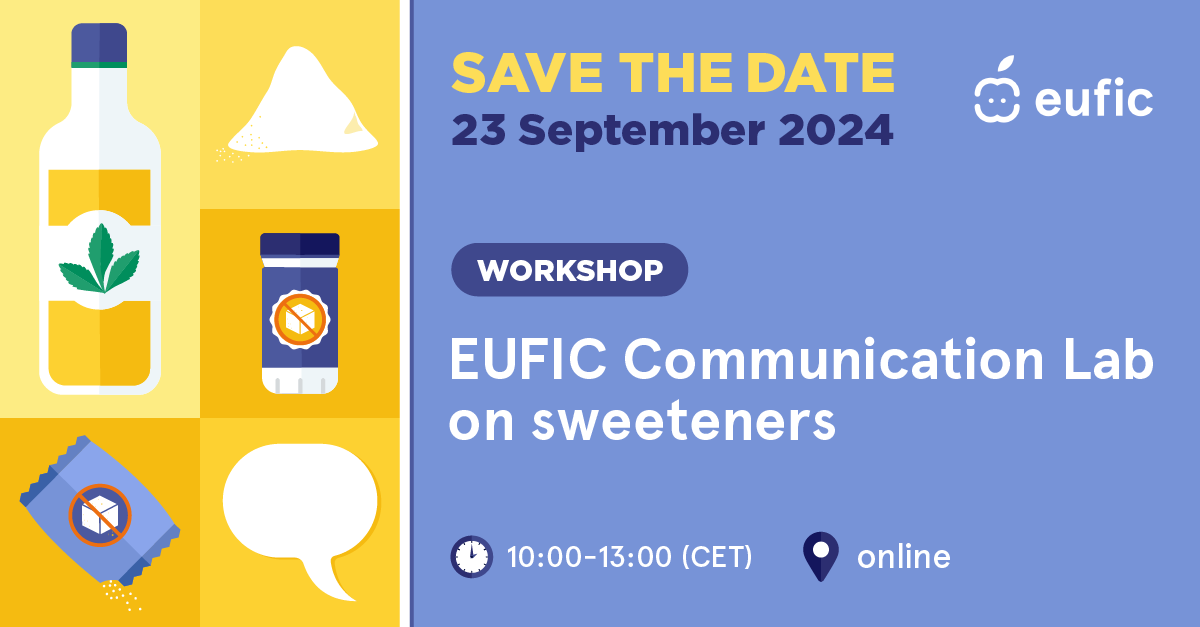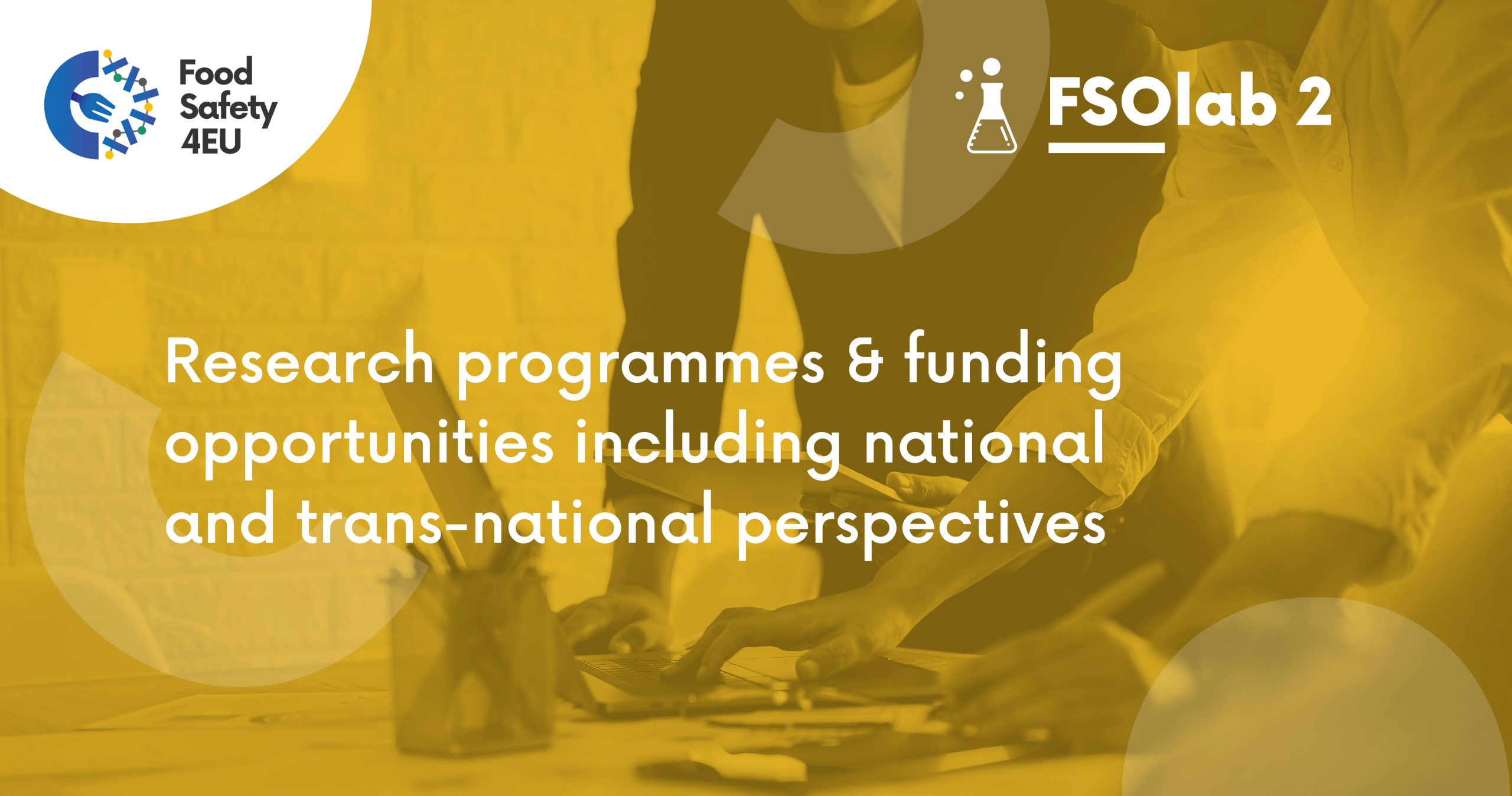
FSOLab 2 concept
On July 2021, the Food Safety Operational Lab 2 (FSOLab 2) kicked off, involving 23 participants from 12 nations across different business sectors (e.g., research, industry/companies, academia, Food Safety Authorities, Consumer advocates, Action Networks, Technology & Communication Services) and covering a wide range of expertise.
The output of this first cycle is the proposal for a new pilot action to be discussed and shared with EU Commission and EFSA, and experimented within the FoodSafety4EU platform.
Why FSOLab 2 topic is important?
It is well known that there exist large differences and inequalities in the distribution of economic resources and research funds among individual countries, both within and outside the European Union. This can have major implications for a country’s performance in a particular discipline such as Food Safety. As well, it can have far-reaching effects on other countries and societies within Europe, potentially hindering scientific progress and innovation. Inadequate financial support for R&D activities is also recognized to weaken the overall quality and competitiveness of national research and to have a long-term negative impact on a country’s economy.
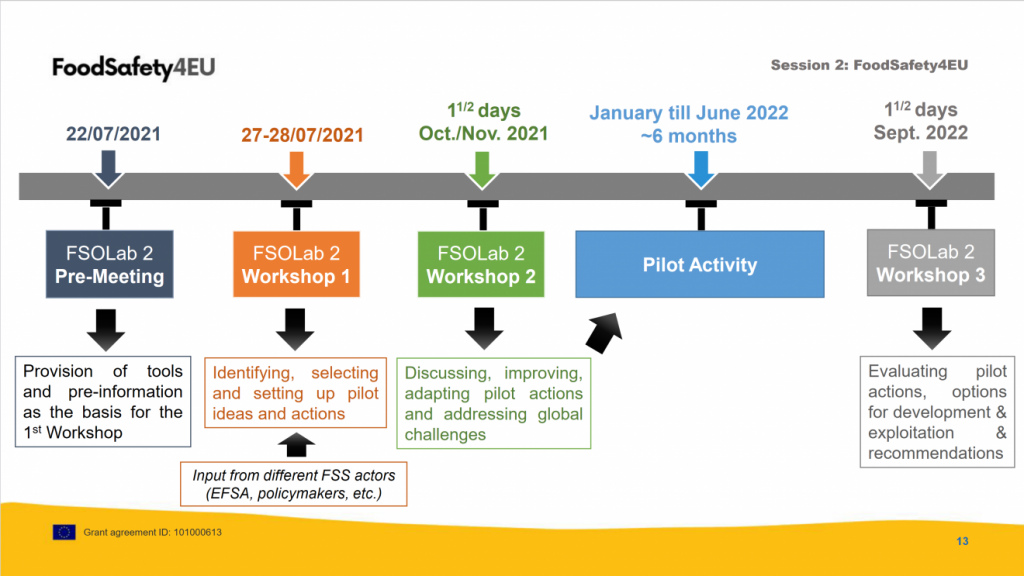
Pilot Actions
Against this background, it is important to address existing problems related to research funding in order to move Europe forward, particularly in the area of Food Safety, and to strengthen public confidence and public health on a sustained level.
FSOLab 2 applies a “Social Lab” approach and targets a specific Food Safety issue, as described above. In general, Social Labs are aimed at addressing complex societal challenges with the involvement of various experts and stakeholders. FSOLabs provide space for practical experimentation in a real-world setting without following standardized planning guidelines and without knowing exactly how to proceed. Social Labs can be understood as a continuous process and a living system that habitually operates in learning cycles. In other words, based on the data collected during the execution of an experiment, called a “pilot action”, pilot ideas are tested, refined, and constantly progressed, to be tested over and over again.
Under the umbrella theme “Alignment of European Food Safety Research by simplification of funding processes”, the following three pilot actions have been identified:
Pilot Action No. 1:
Development of an approach for matching the needs of different/two specific actors such as researchers & industry/funders (in a country or region) for selected Food Safety funding call topics.
Pilot Action No. 2:
Development of a set of recommendations (e.g., policy paper) based on a best practice analysis for more effective Food Safety research funding. As a baseline, countries with a “less mature” Food Safety funding system shall be compared to “more” developed countries allowing beneficial practices to be communicated and transferred from one country (or region) to another.
Pilot Action No. 3:
Drafting a hybrid public/private funding program, with the intention of setting up a new & innovative Food Safety funding program (e.g. crowdfunding) with multi-stakeholder interaction in selected countries.
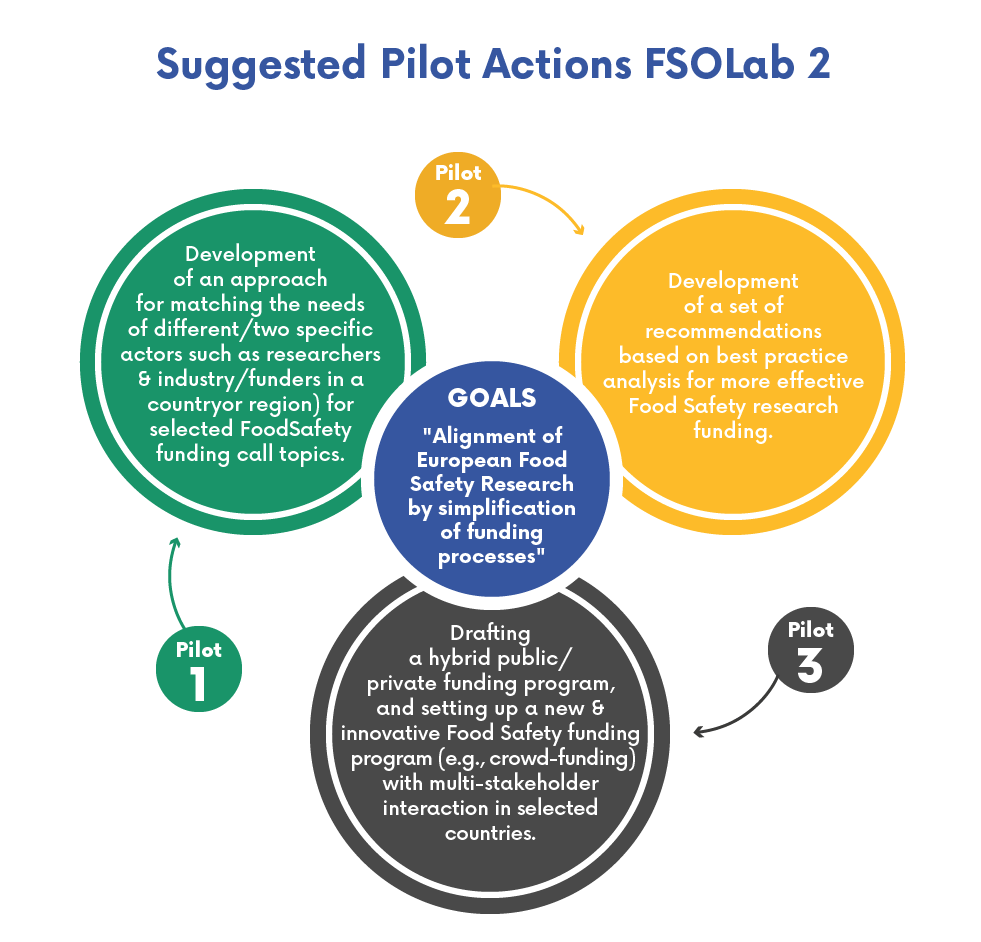
FSOLab2 Team

Prof. Dr. Michael Rychlik
Lab Manager
Technical University of Munich

Dr. Tamara Stelzl
Lab Manager
Technical University of Munich

Dr. Claudia Iasillo
Lab Facilitator
APRE – Agency for the Promotion of European Research
FSOLab2 Updates
The FSOLabs results will contribute to co-create the future European Food Safety strategies and policies for the European Commission including input from all EU!
You can know more about the results of the 1st Meeting of this FSOLab by reading the article here.
SCIENTIFIC PUBLICATION: European food safety research: An explorative study with funding experts’ consultation, November 28, 2023, DOI: https://doi.org/10.1016/j.heliyon.2023.e22979
Stay updated on the next steps! – To learn more about the FSOLabs visit the dedicated page here

